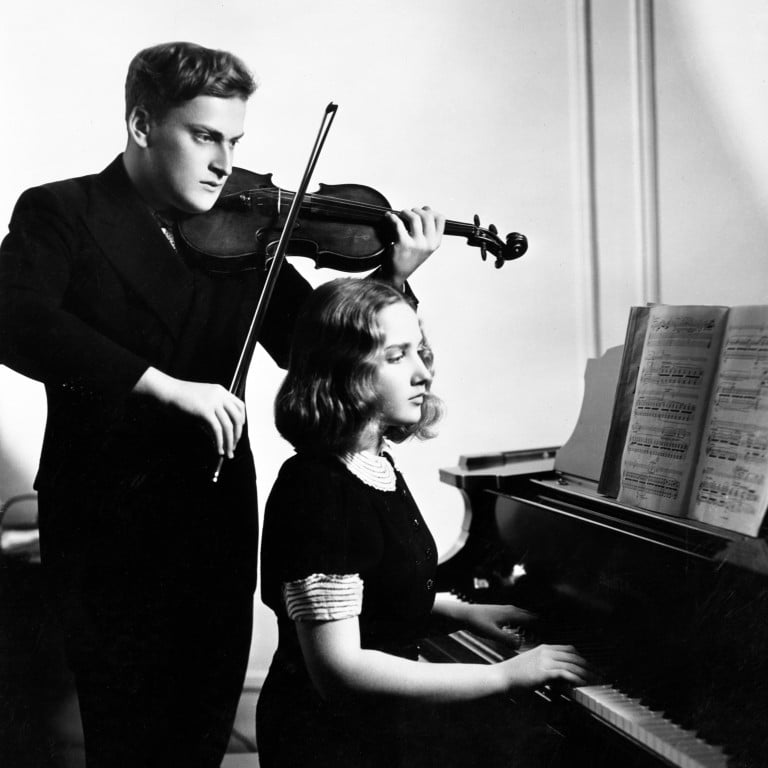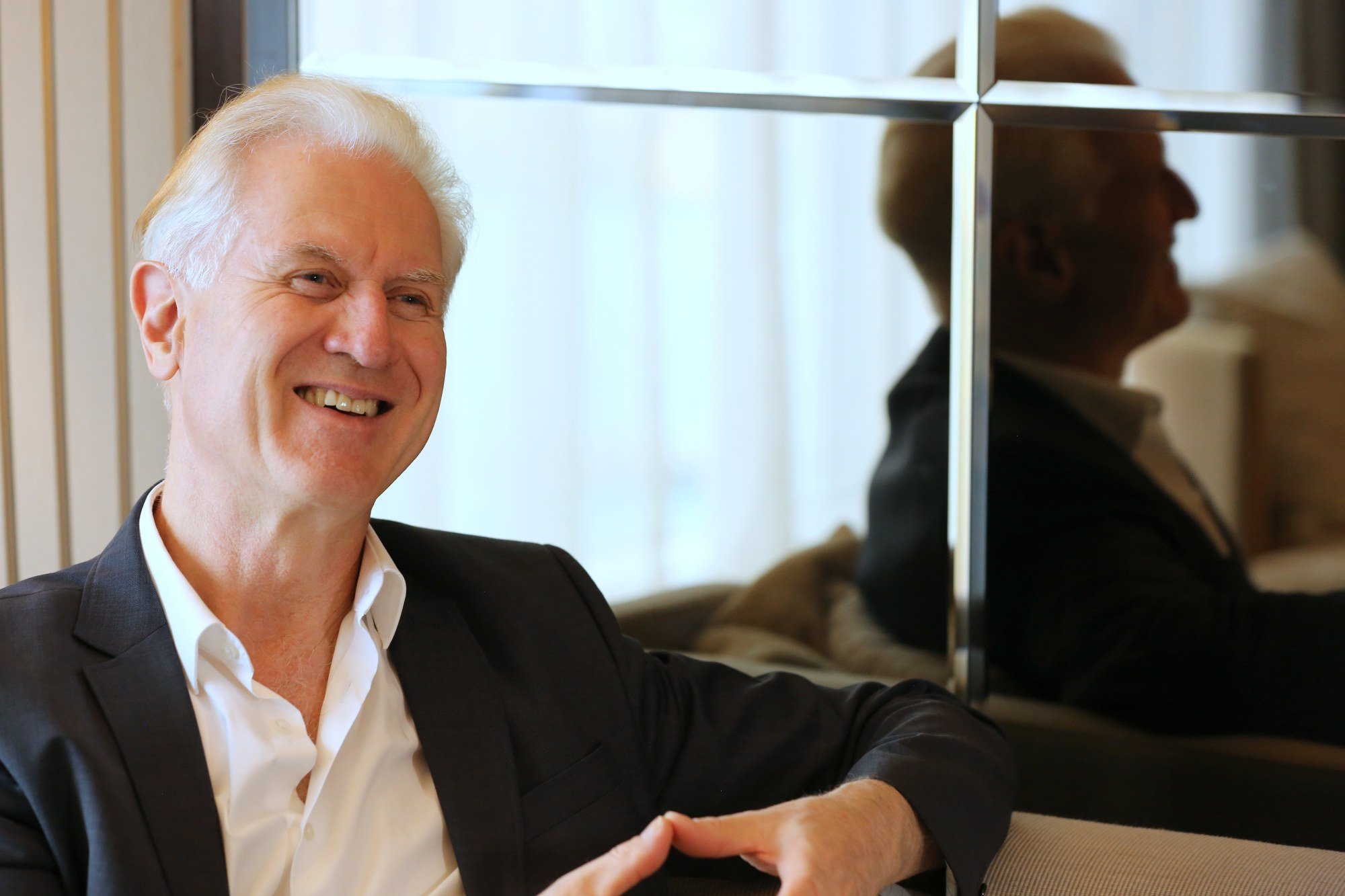
How famous violinist Yehudi Menuhin and his pianist sister Hephzibah’s concert in 1960s Bonn changed Hong Kong Sinfonietta music director’s life
- Christoph Poppen was a young child when his parents took him to see Yehudi and Hephzibah Menuhin perform, but it was the audience’s reaction that shook him most
- Sixty years later he still often thinks of it and how it opened his eyes to the power of music and its ability to touch people’s hearts
Throughout the 1960s and 70s, legendary violinist Yehudi Menuhin and his pianist sister Hephzibah toured the world extensively, including a performance in the early 60s at the Beethovenhalle in Bonn, then the capital of West Germany.
Christoph Poppen, music director of the Hong Kong Sinfonietta, tells Richard Lord how it changed his life.
I guess I was six or seven years old – it’s the first concert experience I remember. My parents took me; they weren’t musicians but they were both big music fans. I was already playing violin, but I don’t think they could imagine the impact the music would have on their son.
It was a very big concert hall, and for some reason we had seats right at the very back, very, very far from the stage. For me, at that age, it was simply too far away. The artists looked like little dolls on the stage; I didn’t feel close to them.

So I started to look around at the people who were seated close to me. Then it started to get fascinating. There were perhaps 1,500 or 2,000 people there, and when everyone had entered the hall, it was hectic, there was a lack of attention, and it felt stressed.
Then I was watching them when the music started. People suddenly started to relax, and after a while to smile, and the atmosphere in the concert hall changed totally.
I was watching all these people while also trying to listen, but the reaction of those people was more interesting to me than what was happening on stage.
He loves the theatre. He wants the rest of Hong Kong to love it too
When the concert ended, everybody jumped up and there was a standing ovation. Seeing all those faces so happy, relaxed, energised – everyone suddenly merged into one big community. People arrived as individuals but left as part of that community.
It was the moment when something in me decided to become a musician. If music can be so powerful that in such a short time it can change people’s internal structure, I thought that being a musician would be a good job.
Sixty years later, I’m still talking about it. It always comes back to my mind. What stayed was this wish to make people happy and give people something.
I always feel that as musicians, we are like a medium: music that is so strong flows through us and reaches the hearts of the audience. It’s still my strongest motivation to be a musician: to touch people’s hearts.
‘Eye-opening’: art gives cellist a light-bulb moment about Schumann work
Classical music has so many layers that can express every human emotion. It’s amazing how much energy, wisdom and truth comes through these little instruments. I think about this a lot when I put programmes together: how do I want the audience to feel?
I strongly believe the audience should leave the concert hall with more energy than they had when they came.
As a conductor, I face the orchestra; I only see the audience at the beginning. But I can feel very much what is going on at my back – if there is tension and alertness.
I think the audience has much more influence on the quality of a performance than they would think. There’s an energy build-up, and it’s not just coming from the stage.

